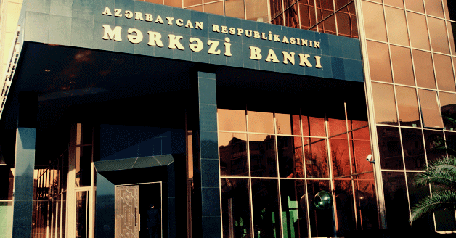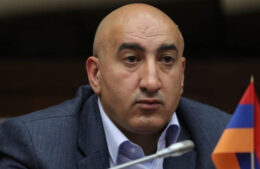Terrorists Among Clients of Azerbaijani Central Bank
- (0)
Terrorists Among Clients of Azerbaijani Central Bank –

BAKU (Panorama.am) — In accordance with a UN Security Council Al-Qaida Sanctions Committee February 29 decision, the Financial Monitoring Service under the Central Bank of Azerbaijan updated its antiterrorist sanction list on March 3, adding 12 names. The list includes over 100 natural and juridical persons suspected of terrorism, according to Azadlig newspaper.
The list was updated in accordance with the law “On the prevention of the financing of terrorism” that was adopted on June 25, 2010 by Azerbaijan’s government. In addition, the list was updated in accordance with the international agreement ordinance #124 that stated “On adoption of the Regulation on approval of the General List of natural or legal persons designated on the basis of relevant United Nations Security Council Resolutions.”
Out of the 12 people added in the list, 11 are Al Qaida members, and 1 is from the ISIS.
Latvian outlet Nasha Gazeta reports that the European Central Bank (ECB) revoked the license of AS Trasta Komercbanka following an appeal by the Financial and Capital Market Commission.
The reason of the offer to revoke the license of the bank was that the bank had long made serious violations in important spheres of its activity. Therefore, the commission concluded that it would not be possible to regulate the activities of the bank, which had long operated at a loss, given its unviable business model.
According to the report, Trasta Komercbanka has representations in Russia, Ukraine, Kazakhstan, Tajikistan, Azerbaijan, as well as a branch in Cyprus.
According to Haqqin.az, the bank’s Azerbaijan branch is mentioned in money laundering cases. TKB Leasing, the subsidiary of Trasta Komercbanka in Azerbaijan, was engaged in money transfer and distribution in Europe, the website writes citing sources from banking sphere. To that end, fly-by-night companies registered in Latvia and offshore areas were used. This is about legalization of dirty money, for which the bank took a commission of 20 percent.
The media have more than once reported on the activities or arrests of Azerbaijani extremists and terrorists in Russia or Azerbaijan-born sponsors of different terrorist organizations. Azerbaijani citizen Ilham Islamly, the Nizhny Novgorod leader of the religious organization Nurjular, which is banned in Russia, was arrested in Podmoskovye in 2010.
In 2012, there were reports that the department of National Central Bureau of Interpol detained Azerbaijan-born member of a terrorist group on the territory of the Russian Federation. Being on the territory of Omsk Oblast, Russia he financed the leader of the terrorist group in November 2008. In 2013, NTV TV channel reported that the police held a special operation in Murmansk Oblast, Russia to detain a merchant from Azerbaijan who was found out to be an extremist. He was found guilty of committing crimes under part 1 of Article 280 of Criminal Code of the Russian Federation (“Public appeals to carry out extremist activity”) and part 1 of Article 282 of Criminal Code of the Russian Federation (“Incitement of religious enmity and hatred”).
The relationship between international terrorist groups and Azerbaijan originates in the early 1990s. Back then, the Azerbaijani army, having failed in the aggression against Nagorno-Karabakh Republic (NKR), retreated with losses. Trying to save the situation, the Azerbaijani leadership, headed by Heydar Aliyev attracted to the war against the Armenians of Nagorno-Karabakh international terrorists and members of radical groups from Afghanistan (groupings of Gulbuddin Hekmatyar), Turkey (“Grey Wolves”, etc.), Chechnya (groupings Basayev and Raduyev etc.) and some other regions.
Despite the involvement of thousands of foreign mercenaries and terrorists in the Azerbaijani army during the war, the Azerbaijani aggression against the Nagorno-Karabakh Republic failed, and the Baku authorities were forced to sign an armistice with the Artsakh and Armenia. However, international terrorists established ties in Azerbaijan, and used them in the future. Azerbaijanis were recruited and sent to Afghanistan and the North Caucasus, where they participated in the battles against the forces of the international coalition and Russian organizations. Over the recent years, citizens of Azerbaijan have been actively engaged in terrorism and extremist activities in Russia, Afghanistan, Syria and Iraq.


















